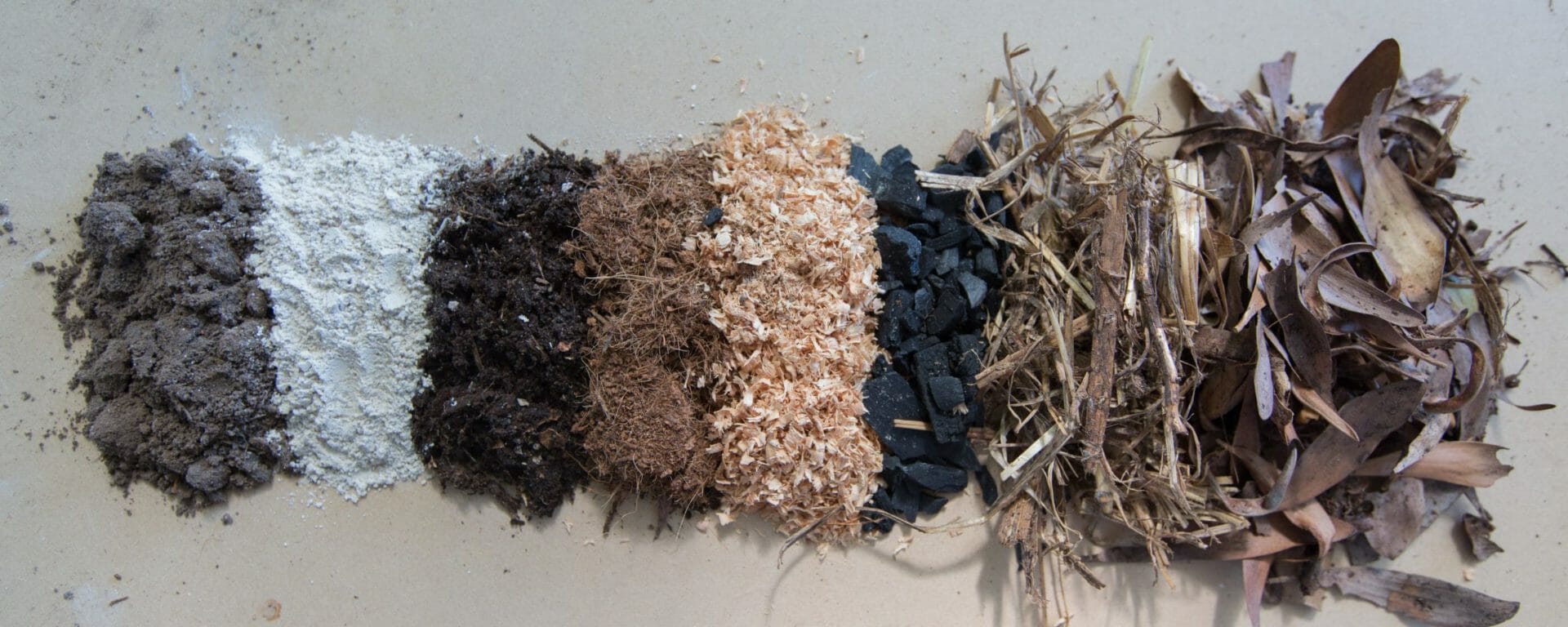What is a Soil Amendment?
A soil amendment improves the physical qualities of the soil, creating a better environment for roots to grow.
Lots of potting mixes include amendments – soil wetters or other additives such as sulphur, iron chelate or lime. Be sure to check if the particular plant needs or doesn’t need any of these amendments as the wrong potting mix can harm the plant – eg. using Azalea, Camellia & Rose Potting Mix to plant English Box would harm English Box as this particular potting mix usually contains sulphur, creating a higher acidity, whereas English Box prefers a more alkaline soil.
Amendments are just that – they are a temporary change and your soil will always revert to its natural state. Plants absorb and deplete the nutrients, and wind and rain wash nutrients away. You will need to re-apply your amendments annually, sometimes more frequently. Instead it is often best to find the right plant for the right soil as the constant re-application of amendments can end up being quite costly and exhausting.
For example, if you have an alkaline soil, don’t plant Gardenias or you will be forever fixing your soil to keep just one plant happy!
The list below contains home-made organic amendments as well as readily available store bought options
Blood & Bone
- Strong, slow release of nitrogen and phosphorous
- Helps produce lush foliage and blooms
- Works best in vegetable gardens
- Promotes early growth of young plants
- Strong root development
Comfrey
- Source of Nitrogen, Phosphorous and Potassium with high levels of calcium.
- Best used as a tea for plants.
Compost
- Helps retain moisture, create more aeration, loosening clay soils, adds microbial life to the soil
- Can reduce metals by diluting the soil with more beneficial matter, but cannot remove them from the soil
Diatomaceous Earth
- Fossilized skeletal remains of minuscule aquatic organisms and is a great source of silica (strengthens plant cell walls)
- Aids in insect & pest control
Dolomite Lime
- Raises soil pH or ‘sweetens’ the soil and a good source of calcium and magnesium
Garden Lime
- Raises pH, making soil ‘sweeter’ or more alkaline
Gypsum
- Calcium sulfate. Gets deeps into the soil and provides calcium and sulphur
- Improves drainage of clay soils
- Eliminates toxic aluminium build up
- Reduces salt levels in the soil by creating drainage for salt to dissolve away into
- Doesn’t work in sandy soils
Magnesium sulphate
- Aka Epsom Salts – source of magnesium and sulphur
- Used with Gardenia’s
Manure (full list of different manure types here)
- Adds microbial life
- Improves water retention
- Can reduce metals by diluting the soil with more beneficial matter, but cannot remove them from the soil
Mushroom Compost
- By-product of mushroom production, usually made up of decomposed peat moss, straw and other organic matter
- Adds organic matter
- Can reduce metals by diluting the soil with more beneficial matter, but cannot remove them from the soil
Perlite
- Improves drainage and aeration
- Prevents soil compaction
- Neutral pH
Sand
- Improves drainage in clay soils (must be coarse sand, not fine sand)
Sawdust
- Used in compost and a source of carbon. Don’t use straight in your garden as it is too rich and can kill your plants while it decomposes
Sphagnum Moss/Peat Moss
- Adds texture and helps moisture retention
- Raises pH, making it more alkaline
Straw
- Adds organic matter
- Aerates soil
Sulfate of Potash
- Contains approximately 50% Potassium and 18% sulfur
Sulfur
- Lowers pH, increasing acidity
Vermiculite
- Increases water and nutrient retention
- Aerates soil
- Less aerating than perlite, better choice for water-loving plants
Wood Ash
- Raises soil pH, making it more alkaline
Worm Castings
- Similar to compost as they add microbial life to the soil, helps moisture retention
- Can reduce metals by diluting the soil with more beneficial matter, but cannot remove them from the soil











